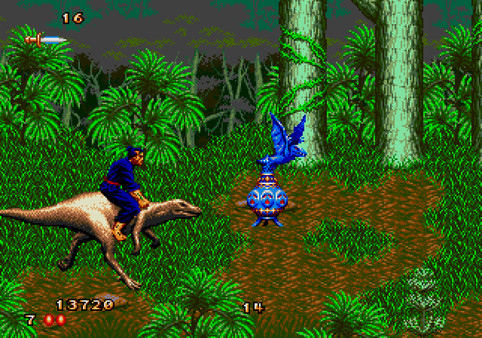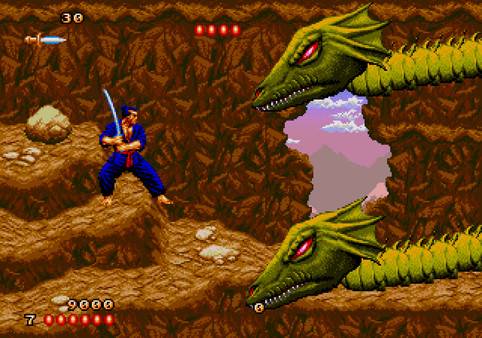-
Welcome to rpgcodex.net, a site dedicated to discussing computer based role-playing games in a free and open fashion. We're less strict than other forums, but please refer to the rules.
"This message is awaiting moderator approval": All new users must pass through our moderation queue before they will be able to post normally. Until your account has "passed" your posts will only be visible to yourself (and moderators) until they are approved. Give us a week to get around to approving / deleting / ignoring your mundane opinion on crap before hassling us about it. Once you have passed the moderation period (think of it as a test), you will be able to post normally, just like all the other retards.
You are using an out of date browser. It may not display this or other websites correctly.
You should upgrade or use an alternative browser.
You should upgrade or use an alternative browser.
Nightdive Studios, SNEG, Ziggurat, Piko Interactive and others rereleasing classic games
- Thread starter Infinitron
- Start date
- Joined
- May 13, 2009
- Messages
- 28,816
![The Year of Incline [2014] Codex 2014](/forums/smiles/campaign_tags/campaign_incline2014.png)


And some company called Zerouno Games rereleases old Spanish game Livingstone I Presume (1986) by Opera Soft.
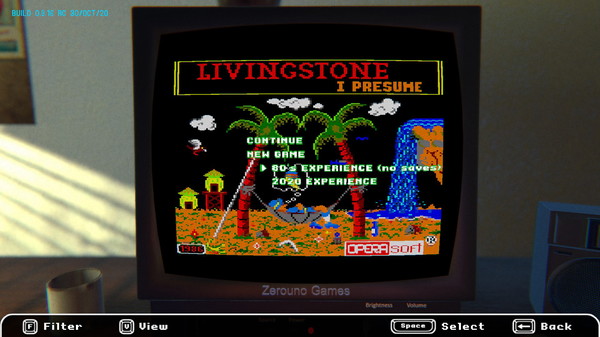
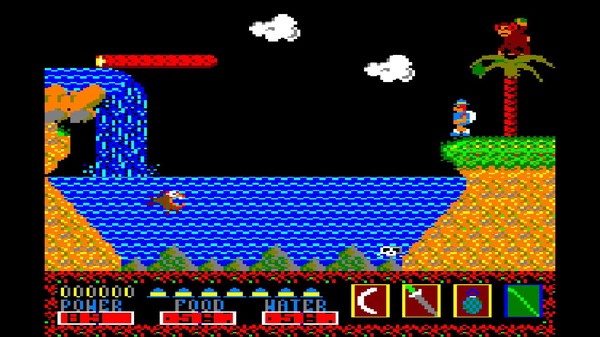
Interesting, that's the Amstrad CPC-version of the game. A native MS-DOS version seems to exist, but I'm guessing they chose to go with 16 colors instead of 4.
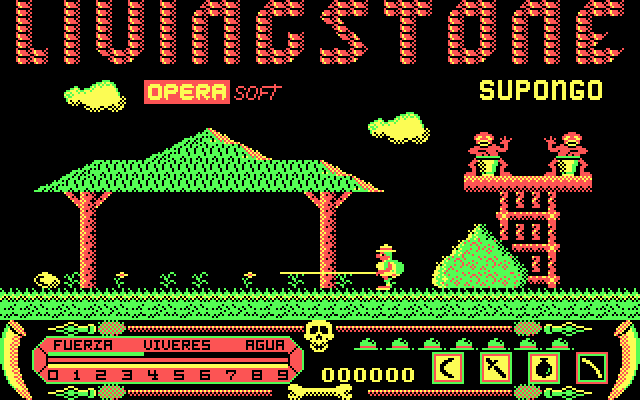
It's also possible that the MS-DOS version is only available in Spanish, I haven't seen any evidence of an English version yet.
There's also a sequel.
luj1
You're all shills

Any news on Powerslave remake in kex?
vonAchdorf
Arcane
- Joined
- Sep 20, 2014
- Messages
- 13,465
Atari rereleases three 80s Microprose strategy games by Sid Meier and Ed Bever.
Sid Meier said:All three of the Command Series, as the wargame trilogy came to be known, provided a solid simulation experience and profound historical lessons–but I don't think they necessarily counted as games.
In his memoir he writes about how they referred to losses to not offend Vietnam veterans and that he gladly broke free from his "wargame obsession" after making those games, because for him it meant wallowing "in life's toughest moments for that long" (long playtime for a game vs. a short movie or visit to the museum). Today it's hard to understand that kind of emotional response to a wargame with 1986 graphics.
- Joined
- May 21, 2014
- Messages
- 210

Demon's Winter and Shard of Spring are now available on GOG.
- Joined
- Jan 28, 2011
- Messages
- 100,144















https://www.pcgamer.com/uk/2021-showed-theres-a-fine-line-between-remaster-and-disaster/
2021 showed there's a fine line between remaster and disaster
Reflections on one of 2021's biggest trends, with insights from Nightdive Studios
Your phone pings. A new trailer just dropped on YouTube, and with a quick flash of a logo, it teases a forthcoming remaster of one of your old favourites, Hurt The Bad Men II. This in itself isn't a huge surprise—it's generally considered the seminal HTBM release, and remasters often end in the number two: Baldur's Gate II and Age of Empires II, for example.
But quick: What do you imagine this remastered game will look like? Do you picture the old characters with fancy lighting bouncing off their 4K textured faces in Unreal Engine 4, or a pixel-for-pixel likeness of your childhood treasure running in Windows 10? Are there new voice actors and script changes, orchestral recordings of the original MIDI files, or lovingly upscaled typefaces and mouse pointers? Is it even still culturally appropriate to hurt the bad men instead of reasoning with them?
That's the thing, isn't it—nobody knows what to expect. Despite its prolific incursion on the games industry status quo, the revised and re-released update of a classic title doesn't have an agreed upon set of rules that come with it yet. 2022 brings many returning classics, including remasters of games like Life is Strange and Kingpin—surely the polar north and south of each other—and of Blade Runner and Braid. Beyond them are projects of a different kind, like Prince of Persia: The Sands Of Time Remake, which modernise familiar experiences in new tech environments. All these endeavour to capture and re-create the initial joy of some distant original release, but as an industry, we haven't yet decided what final product should entail.
Few studios can claim to be as familiar with the art of bringing back the classics as Nightdive Studios, which has re-released 100 games since 2013, many of them given the remaster treatment. The problem, as Nightdive CEO and cofounder Stephen Kick explains, is that a remaster appeals to someone's memories, rather than an objective reality. "You're adding in a number of quality of life features and updates and enhancements to make the game look and feel like you remember it looking, though that's never really the case … you're basically taking the DNA of that game and you're infusing it into essentially a brand new title, something built from the ground up where nothing is really carried over verbatim, but you're still trying to replicate that original experience as best as possible."
It's in that grey area, the interpretation of what constitutes a game's DNA, what's sacrosanct and what's crying out for creative intervention, where a remaster lives or dies.
Nightdive's own brand of remasters, such as its recent work on Quake or 2015's Turok Remastered, don't stray far from their source material. In many cases, it's only that you're launching the game from Steam—and that it then actually loads without crashing, in a widescreen resolution—that gives away that you're not playing the original. That due diligence to the classic license has earned the studio a well-regarded portfolio, an engaged community, and a relationship with Bethesda that sees further id treasures like Doom 64 Remastered in the pipeline. Basically, when it comes to the remastering process, these guys are The Oracle.
But recent years have also provided several infamous examples of remasters failing with fans. Diablo II: Resurrected's missing TCP/IP multiplayer. The missing bits and lack of polish in Warcraft III: Reforged. And, unfortunately for Rockstar, Grand Theft Auto: The Trilogy – The Definitive Edition is out in front leading the parade.
The GTA remasters were rife with "enough bugs and glitches to make Cyberpunk 2077 flinch," we said at launch, and there was precious little of that fastidious attention to detail that established these games as all-time greats in the first place. It was like driving past your childhood home to find the new owners have rebuilt it to just slightly, but irrefutably, lopsided dimensions. And there's a waterslide coming out of your old bedroom now.
Its many oddities—like the now-fixed Tuff Nut sign—earned it an instant social media mangling and meme-ifying, along with a 0.5 Metacritic user score. It wasn't that Rockstar made too many creative leaps that disturbed the sacred memory of their source material, but more likely that the games—three of them at once, remember—proved simply too much to remaster by hand and maintain Rockstar's trademark quality control. Certain glitches—misspellings like "enchillaoas" at a Mexican food market or a sign for "bearboxes" in a garage—suggest that the AI program developers used for initial retexturing created errors that the team couldn't catch by eye before release.
That doesn't mean AI is the de facto enemy of a good restoration job, Nightdive business development director Larry Kuperman explains: "My expectation is that over the years, AI is going to get better, and the more we use it in classic games, the more refined our techniques are going to become. Use of AI becomes necessary not just because of the scope of the game. There's a corollary to that, which is the cost of remaking or remastering. It's simply a more efficient way of doing things than having them hand drawn."
Certain assets or games might also force a studio's hand, says Kick. "We are using extensive AI upscaling for our Blade Runner remaster, because those assets are totally missing. And they can't be extracted from the game, because they're all baked into pre-rendered videos. So we would literally have to remake the entire game from the ground up to be able to do any kind of that traditional remastering workflow. It was essential that we use some kind of algorithm-based AI upscaler to hopefully re-create some of the lost details and in those older lower resolution videos that make up the majority of the game."
The more such tools are used to update classic games, Kick and Kuperman agree, the more effective they'll become. And should we find ourselves feeling misty-eyed for those classic 100GB open-world games of the 2020s in 20 years, we'll probably need more than a team of dedicated texture artists to get them upscaled for our quantum PCs and 32K monitors.
Not that remastering is about embracing modernity wholeheartedly, of course. Even the titles playing fast and loose with the original game, like Mafia: Definitive Edition, find themselves balancing old and new. Yes, the puddles on the crime-ridden streets of Lost Heaven look every bit as good as Cyberpunk's. Within the modern Illusion Engine engine, new actors play characters with totally different facescans than their original counterparts. But they're still running-and-gunning like it's 2002, or else there'd be nothing left to tether it to the original Mafia. Those simplified cover shooter gauntlets have long since gone out of fashion, but they're essential to the Definitive Edition.
You need anachronistic touches in a remaster—just enough of them to speak to that fallible memory of how the game plays. Like Turok's famous resource-saving trick.
"The single distinguishing factor," Kuperman says "and a feature that jumped out, was the fog. We understood from our conversations with the original developers the reason that the fog was so core to the original version of Turok is because of limitations of hardware. By limiting your sight distance, they can increase the detail without overwhelming the capabilities of the hardware. Of course, we have more modern hardware now. So [our] default setting is to have the fog rolled back to increase your range of vision. However, if you really are a purist, you can toggle that. There's an option to restore the fog."
That fog slider, like the option to show Quake's goading game shutdown prompts, asks the player: How does the game look in your memory, and how much does this element feature? Since everyone's subjective and wayward recollection will vary, they can adjust the exact level of anachronism to taste.
It's that selective fidelity to the historical truth that makes remastering more of an art than a science. It's also what makes it an exciting and only occasionally crushing experience as a player. However, there are a few moves any studio would be prudent to make if they want to take the guesswork away from hitting the right note.
The first is community involvement. It's unlikely that many of Hurt The Bad Men II Remastered's customers will be experiencing the game for the first time then and there. A core audience exists, probably frequents a forum where widescreen patches are exchanged, and already has a comprehensive feature list in mind for a remaster. To that end, Nightdive enlisted well-regarded Doom modder Samuel "Kaiser" Villareal to work on several of its KEX Engine projects, including Doom 64 Remastered.
Another route is to get the old band back together. Artists poring over partial asset libraries, sometimes even on DAT cassettes, must daydream about having an original developer sitting at the next desk over, ready to consult and illuminate the darker, more cobwebbed corners. EA went one better for the Command & Conquer remasters and brought in Westwood alumni, including fan favourite audio director Frank Klepacki. For Quake Remastered and beyond, Nightdive subscribes to a similar philosophy.
"We are working with Kevin Cloud, one of the original art directors on Quake," said Kick. Cloud started at id working on Wolfenstein 3D, was the art and project director on Quake 2, and became a co-owner of the studio until it was acquired by ZeniMax "He was able to help us guide some of the changes that we wanted to make visually."
Nightdive did the same thing when it came to remaking System Shock, hiring art director Rob Waters to help "drive the overall aesthetic".
Having someone around from the source material might safeguard a remake or remaster from succumbing to the greatest temptation and cardinal sin: stamping one's own identity on it. Whatever may be in the player's personal memory vault, you can be certain an edgy modern day twist to the dialogue or a topical meme is not. A single touch like this might make or break the experience.
The mantra at Nightdive before the alchemical process of reconstructing somebody's idealised memory of a game is this: preservation and accessibility. We're right to raise an eyebrow when originals disappear from storefronts when their remasters appear, and rightly scandalised when our memories are presented to us in distorted form. If only the GTA remasters had been developed using a similar rule.
- Joined
- Oct 3, 2015
- Messages
- 13,403
"The third title in the "Command Series" of tactical wargames from Microprose, the game begins with the defeat of the French colonial army and ends with the Viet Cong victory over the South Vietnam forces in 1972."
Someone might want to inform Steam that South Vietnam was defeated in 1975, not 1972, and by North Vietnam, not by the Viet Cong.

It appears that the final scenario in this game takes place in Quang Tri in 1972, but, even though South Vietnam lost the province initially to North Vietnamese forces during the Easter Offensive, South Vietnam won the Second Battle of Quang Tri and regained control of most of the province later in the year.
- Joined
- May 13, 2009
- Messages
- 28,816
![The Year of Incline [2014] Codex 2014](/forums/smiles/campaign_tags/campaign_incline2014.png)


"The third title in the "Command Series" of tactical wargames from Microprose, the game begins with the defeat of the French colonial army and ends with the Viet Cong victory over the South Vietnam forces in 1972."
Someone might want to inform Steam that South Vietnam was defeated in 1975, not 1972, and by North Vietnam, not by the Viet Cong.
It appears that the final scenario in this game takes place in Quang Tri in 1972, but, even though South Vietnam lost the province initially to North Vietnamese forces during the Easter Offensive, South Vietnam won the Second Battle of Quang Tri and regained control of most of the province later in the year.
Steam is run by Valve.
Valve is run on a "flat structure" system.
"Flat structure" system is communism in the workplace.
Communism seeks to "free" the workforce, and overthrow capitalism and it's single-minded greed for money.
Communists also hate the truth, and love to rewrite history to further their agenda.
The only thing communists seem to love more than rewriting history, is money. Otherwise they wouldn't be publishing 30+ year old games on Steam.
There's a reason most people have a hard time understanding the world right now, and that reason is communists.
LESS T_T
Arcane
- Joined
- Oct 5, 2012
- Messages
- 13,582
![The Year of Incline [2014] Codex 2014](/forums/smiles/campaign_tags/campaign_incline2014.png)
https://www.gamedeveloper.com/press...lect-titles-of-innovative-studio-rainbow-arts
Ziggurat Interactive Acquires Select Titles of Innovative Studio Rainbow Arts
DENVER, COLORADO (January 13, 2022) — Ziggurat Interactive, publisher of multi-platform retro and modern games, announced today they have closed a deal with Rainbow Arts, a popular game developer and publisher from the ‘80s and ‘90s. As part of the agreement, Ziggurat Interactive now owns more than 80 titles from the Rainbow Arts catalog, including Rendering Ranger R2 (known as Targa outside North America), Logical, Lollypop, X-Out, and M.U.D.S. – Mean Ugly Dirty Sport.
“We are incredibly pleased to add a number of significant games from Rainbow Arts to Ziggurat’s growing catalogue of historic games,” said Michael Devine, SVP of Business Development at Ziggurat Interactive. “Rainbow Arts was a premiere and iconic European video game publisher of the ‘80s and ‘90s. Each game released during that time frame – mainly made for the C64, Amiga, and PC – evokes memories of 16-bit wonders, colorful graphics, and playful challenges the moment you see the rainbow logo appear. We can’t wait to revitalize these games and share them with today's classic gaming fans.”
Rainbow Arts Software GmbH was a German video game publisher based in Gütersloh, Germany, founded in 1984 by Marc Ullrich and Thomas Meiertoberens. Many of their games were originally released on the Commodore 64 (C64) and the Commodore Amiga, with later titles being created for, or converted to, the IBM-PC platform. The studio is best known for titles such as Logical, Lollypop, X-Out, and Mad TV™.
Rainbow Arts’ most prominent release, Rendering Ranger: R2, is one of the most sought-after games for the Super Famicom, as only 10,000 copies were manufactured and were only available in Japan. As part of the agreement, Rendering Ranger: R2 joins Ziggurat’s extensive library, and the company has promised an update on their plans for the title later this spring.
More info about Ziggurat Interactive, its current lineup, and upcoming announcements is available on Facebook, Twitter, Twitch, and the company’s official website, with info on their upcoming products to be announced on the same.
About Ziggurat Interactive
Ziggurat Interactive was launched in late 2019 with the goal of preserving and expanding the legacy of video games. Headquartered in Denver, Colorado, Ziggurat creates and celebrates games — expanding the audience for both retro and new titles by making them accessible to all types of players across multiple platforms.
LESS T_T
Arcane
- Joined
- Oct 5, 2012
- Messages
- 13,582
![The Year of Incline [2014] Codex 2014](/forums/smiles/campaign_tags/campaign_incline2014.png)
Atari rereleases three 80s Microprose strategy games by Sid Meier and Ed Bever.
Atari rereleases more old Microprose games.
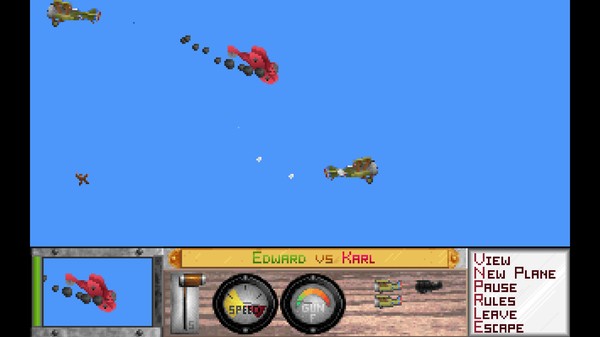
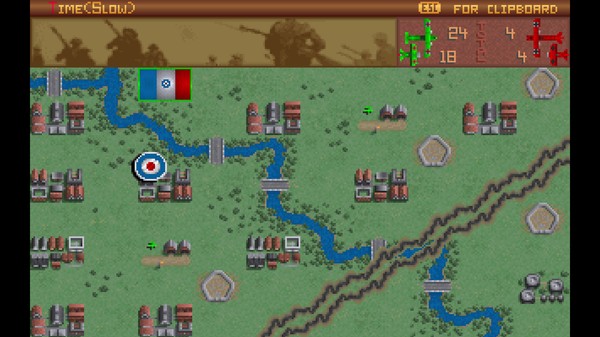
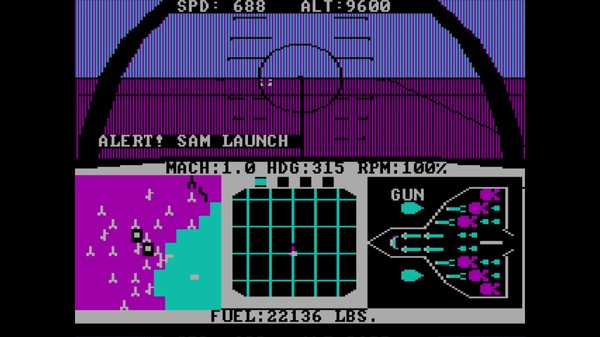
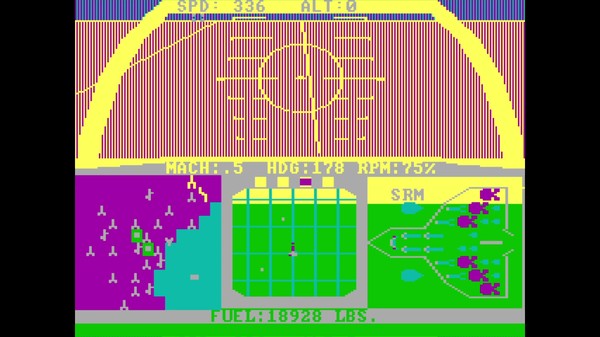
Also Ziggurat publishes a remake of 2001 shooter Deadly Dozen by the original developer:
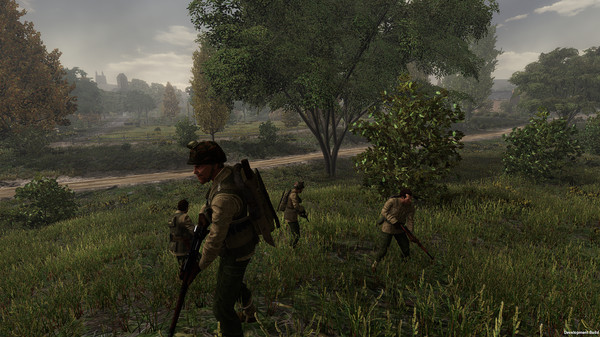
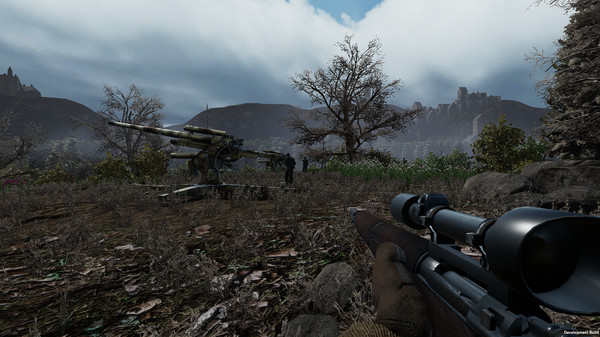
And Mirrorsoft is alive and it will bring Chronomaster to Steam.
From the makers of Sanitarium, ergo, interested.
- Joined
- Jan 28, 2011
- Messages
- 100,144















Morpheus Kitami
Liturgist
- Joined
- May 14, 2020
- Messages
- 2,713
That much for the DOS version of a 1985 game aside, what's up with the inconsistent use of the title? At first I thought they might not be able to use F-15 for some reason, but for the most part it is using F-15 Strike Eagle instead of Strike Eagle.
A horse of course
Guest
And Mirrorsoft is alive and it will bring Chronomaster to Steam.
From the makers of Sanitarium, ergo, interested.
Yes, I noticed that when I was checking Mobygames for cover art during the HeroQuest video. I should pin a message in the comment section, although I have no idea of the quality of the port. I assume it's a simple dosbox job.
edit: According to the GoG comments, it's missing the game manual, which is pretty fucking important due to the interface

Last edited by a moderator:
LESS T_T
Arcane
- Joined
- Oct 5, 2012
- Messages
- 13,582
![The Year of Incline [2014] Codex 2014](/forums/smiles/campaign_tags/campaign_incline2014.png)
Atari rereleases three 80s Microprose strategy games by Sid Meier and Ed Bever.
Atari rereleases more old Microprose games.
And even more Microprose flighties.
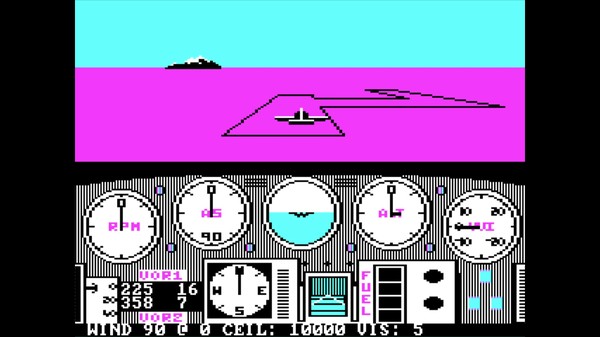
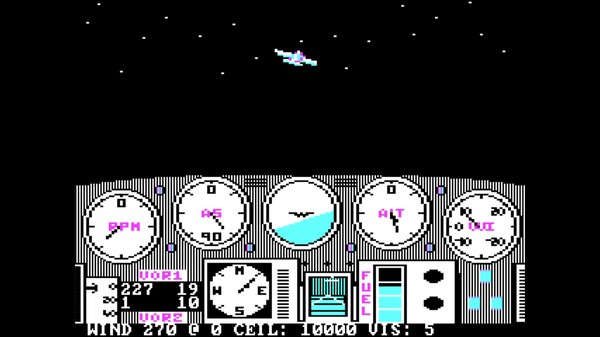
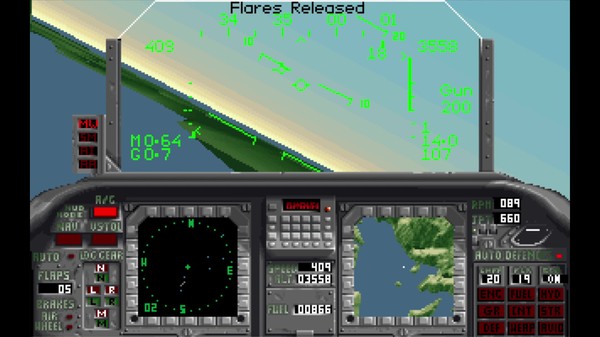
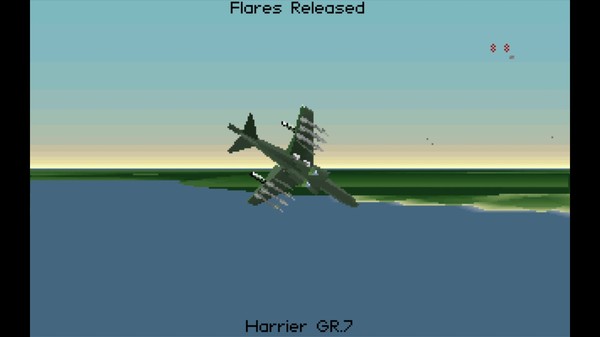
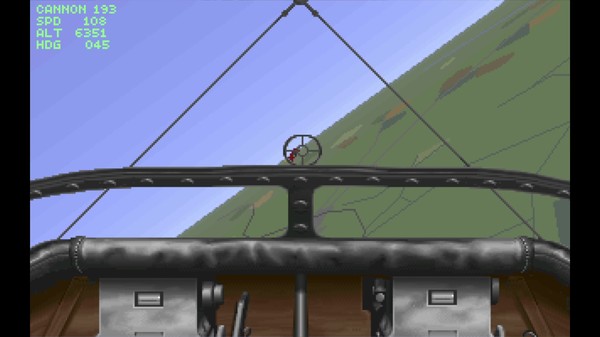
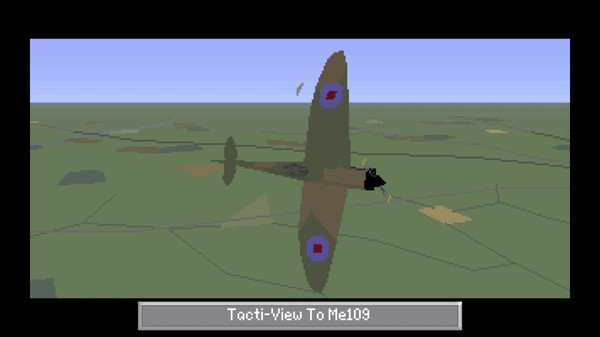
Yes, I noticed that when I was checking Mobygames for cover art during the HeroQuest video. I should pin a message in the comment section, although I have no idea of the quality of the port. I assume it's a simple dosbox job.
edit: According to the GoG comments, it's missing the game manual, which is pretty fucking important due to the interface

Not if you have a boxed copy....

- Joined
- May 13, 2009
- Messages
- 28,816
![The Year of Incline [2014] Codex 2014](/forums/smiles/campaign_tags/campaign_incline2014.png)


Yes, I noticed that when I was checking Mobygames for cover art during the HeroQuest video. I should pin a message in the comment section, although I have no idea of the quality of the port. I assume it's a simple dosbox job.
edit: According to the GoG comments, it's missing the game manual, which is pretty fucking important due to the interface

Not if you have a boxed copy....
Or a certain eXotic collection...

LESS T_T
Arcane
- Joined
- Oct 5, 2012
- Messages
- 13,582
![The Year of Incline [2014] Codex 2014](/forums/smiles/campaign_tags/campaign_incline2014.png)
Spirit of Adventure, a precursor to Realms of Arkania will be rereleased by Unique Games, a Austrian published who previously rereleased some obscure German retro games.
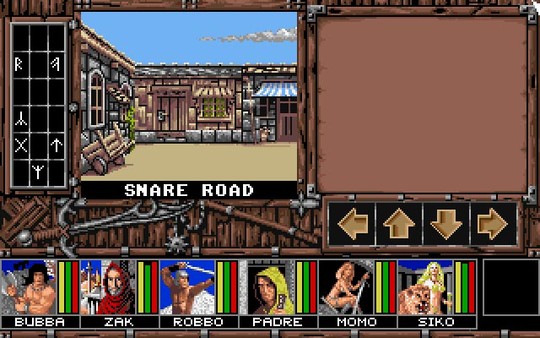
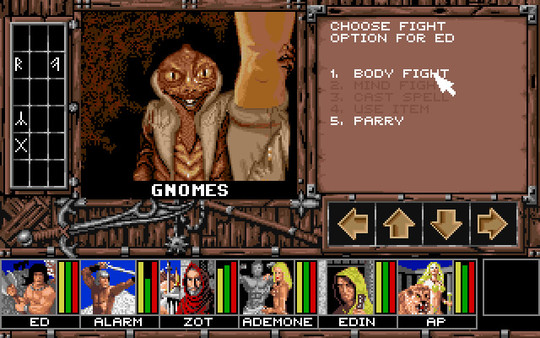


- Joined
- Oct 3, 2015
- Messages
- 13,403
Appears to be a port of the Sega Genesis version of Second Samurai, which was effectively a different game from the original Amiga version.




Baron Dupek
Arcane
Piko is alive and rereleases 1999 PS 1 RPG.
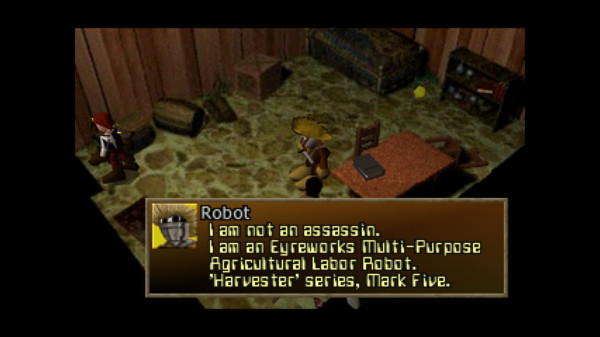
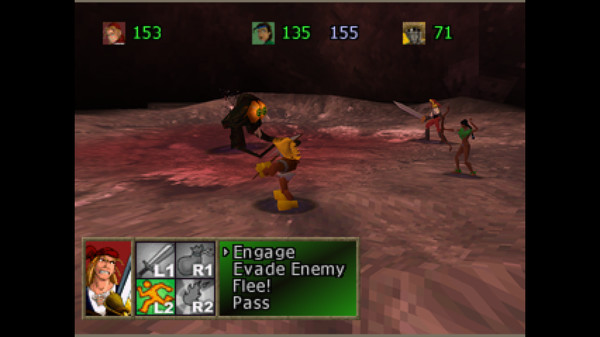
that reminds me...
Dark Earth in digital stores when?
- Joined
- Jan 28, 2011
- Messages
- 100,144















https://www.gamesindustry.biz/artic...-an-art-form-then-we-have-to-respect-our-past
Nightdive Studios: "If we want to say games is an art form, then we have to respect our past"
The remaster specialists behind Quake, Shadowman and Turok discuss their approach to keeping the classics alive
"We just want to make the kinds of games we'd like to play."
Work in the games media long enough, and interview enough studio directors, and you will have encountered that phrase. It's a simple notion: We're not interested in the trends, we just want to make the things we like.
Yet I've never encountered a studio where that sentence is so undeniably true as Nightdive, the team behind popular remasters such as Quake, Shadowman and Turok. It was a company born out of a developer who wanted to play a game but couldn't.
"My background is in character art," begins Nightdive CEO Stephen Kick.
"I was working at Sony Online Entertainment for a number of years, along with my girlfriend at the time, and I got burned out creatively. So we quit our jobs, packed up everything into this little Honda Civic and we drove across the border into Mexico, with the intent that we would travel for as long as we could afford to.
Nightdive started because one man wanted to play System Shock 2
"I brought a little netbook with me, and I put a whole bunch of classic games on there. Six or seven months in the trip when we were in Guatemala, I had this urge to play System Shock 2. I went to go boot it all up... and I just couldn't get it to run. I went to [retro games digital retailer] GOG.com, and they didn't have it, but it was one of their top requested games of all time.
"That led me in this rabbit hole of trying to find out what happened to [original developer] Looking Glass. Where did the rights go? At the end of the night I had an email address for the general counsel of an insurance company in the Midwest, who wrote back to me almost immediately."
The licence holder was interested in Kick developing a System Shock 3, but that was out of the question.
"I was in the middle of the jungle and probably had about $5,000 to my name. So I proposed that we re-released the original games digitally. They hadn't had that proposal yet, so they took the risk and that's how Nightdive got started."
Nightdive is currently 40 people based around the world and split across two development teams. Its first employee, outside of Stephen and his partner, was UK-based Daniel Grayshon, who had been posting System Shock mod guides online.
"Basically that's how I found everybody who works for Nightdive, more or less," Kick says. "They're doing something really cool that has some kind of connection to a classic IP, and they just end up turning their passion into a career."
Business development director Larry Kuperman adds: "We hire people who know and love this stuff. If you bring in somebody who's a Call of Duty fan and you tell them to remake Quake, well, you're going to get Quake that looks like Call of Duty. If you hire somebody that loves Quake, you're going to get something that looks like the original Quake."
Last year's Quake remaster with Bethesda was released across PC and consoles
It was one such classic game fan who developed Nightdive's secret weapon: the KEX engine.
"Well, not so secret, we include the logo in all the game, but yes, that that has been our competitive advantage," Kuperman tells us. "It was designed by our lead engine developer who's still with us, Sam 'Kaiser' Villareal."
Kick explains: "We had been looking at doing Turok, and in our research we discovered that Sam was working on a reverse engineered port of the N64 game. This was the big turning point for Nightdive, where we went from just doing emulated re-releases, using DOSbox or ScummVM, to what we did with Turok where we had a custom engine. That was really kind of our gateway to where we are now. We don't just put the games back out as they were, we enhance them, we include all kinds of modern features to make them smoother, more enjoyable. We like to make the games as you remember them, rather than exactly as they were."
Shadowman Remastered features entirely new levels
It's not just about making these games run at 4K and 60fps, either. In last month's release of Shadowman, the firm added in entirely new levels, bosses and areas that had initially been cut from the game due to time, under the guidance of original Shadowman composer Tim Haywood.
"He was there pretty much every step of the way," Kick says. "Whenever we had a question about the new content that we implemented, he was there to basically say 'this isn't exactly how I remember it, it was more like this' or 'this was ultimately the goal of this level that got cut.' A lot of the time we didn't have the original design documents, and so we had to make up how it should be. Fortunately Tim was there, to hold our hand."
Kuperman adds: "One of the key factors in our decision making around what games to bring back is access to the source code. Very often we find things in the source code that got cut from the original just because they ran out of time, or that that they felt would make the game too big, and we're able to restore some of those."
Changing things can be controversial amongst the classic game community. There's always a fine balancing act between staying true to the original, and modernising it for today's audience.
Fans also can want different things, and the key for Nightdive has been catering to as many of them as possible. For instance, in the original Turok, the developers used 'fog' to hide asset pop-up, but with modern technology that's not an issue. Nightdive's remaster allows players to see much further into the distance, yet to preserve that original style, fans can turn the fog back on.
"There was a very in-depth discussion about adding a map to Shadowman," Kick says. "But it kind of took away the mystery and the labyrinthian quality of levels. But in Turok 2, for example, just being able to find out where to go next was kind of a negative aspect of the game and so our guys put in waypoints... but those can be turned off if you want the original experience. We never force anything on a player, it's always an option that you can toggle off."
You can turn the fog back on in the Turok remaster
Shadowman is a pretty niche title, albeit one with a cult audience. The same is true of the studio's latest game, PowerSlave: Exhumed. Yet it's starting to work on bigger brands, namely Quake and Doom. Should we therefore expect Nightdive to move away from the unusual projects to focus on the bigger brands?
"Not as long as Stephen is my boss," Kuperman says laughing. "We're going to continue paying attention to some of the obscure or lesser-known games. Our goal is -- hence the reason we're called Nightdive -- to bring back the lost treasures and release games that you didn't know you wanted to play."
Kick adds, "That's always been a guiding philosophy. If we want to say that games is an art form and what we create collectively is art, then we have to respect our past. We have to make it playable and enjoyable and we have to make sure that people can experience it."
He continues: "There are games they didn't really move the needle in terms of sales, but since the re-release they've discovered a completely new audience that has come to really appreciate them. Hopefully by being able to play these games they will influence the next generation of developers so that our unconscious collective is not just Call of Duty or PUBG."
Nightdive's journey has gone from ports to remasters to director's cuts, and the next logical step is the full remake. The studio's current big project is exactly that: a remake of the original System Shock. The project has undergone numerous changes down the years, but it's now finally progressing well and due out this year.
"The remake aspect is something that is entirely new for us, and the team that we've built up around that kind of exemplifies our desire to take something from 1994 and make it definitely more accessible to modern gamers," Kick says.
"We've got one of the original developers on the team to help us when it comes to tough decisions. That's been a real boon for us, to have a guiding light to ensure that the DNA of what made System Shock System Shock is still present. It's going to surprise a lot of people that you can create a game with some of those antiquated design philosophies and it still works well today.
"There is just a lot of little things that people are going to re-discover about classic games in general when they play this, because we are kind of going at it with the idea that some modern games, shooters especially, maybe are a little too easy. They hold your hand a little too much and they aren't demanding as much from the players as the classics did, and I'm hoping that that's a refreshing thing for a lot of people."
Kuperman add: "In our ups and downs, we found we didn't want to make a completely different game, and that really cost us a lot in terms of time and money. There is a tremendous temptation when you start working on a classic to put your own imprint on it, and that's fine if you stay within the original design, or as long as we respect what was originally part of it. When you lose sight of that, that's why we had to refocus."
System Shock is a full remake of the 1994 original
Now with ports, remasters and remakes... the next step would be to do something original. Kick says the firm would be interested in doing that, but it will need to fit with what the company is all about.
"It's always been a goal to develop an original IP, but if we ever do that it'll probably be a spiritual successor. There's a lot of great games out there that we haven't been able to get hold of for one reason or another, and the only other route to honour that is to do a spiritual successor."
There is undeniably a skill to a good remaster or remake. For every Crash Bandicoot Trilogy or Resident Evil 2 success, there's a Grand Theft Auto Trilogy Definitive Collection or Warcraft 3 Reforged to remind us how things can go wrong. Nightdive says the secret is making sure you have the right people who truly understand what it is that made the game special in the first place.
"We all grew up playing these games, and we have a really great understanding of what made them fun, and what was annoying about it," Kick says. "We just look at it and go: how far can we take it without violating its spirit? But at the same time make it accessible so that maybe somebody who's never played it before is going to enjoy it as well."
Indeed, Kuperman says that although older games make up the bulk of Nightdive's audience, the studio has found younger gamers are increasingly interested in these classics, too. Plus gamers from outside of Europe and the US.
Despite partnerships with Bethesda, a major remake project, and the desire to keep unearthing forgotten gems, Nightdive isn't about to embark on a huge recruitment drive.
"It's about steady growth," concludes Kuperman. "I'm very concerned about maintaining the Nightdive culture. I don't want to get us to a point where we have to double in size because of a new project that comes up... because you lose something there. But we will keep reinvesting, as we always have done."






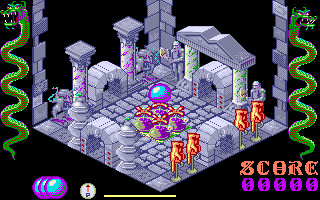
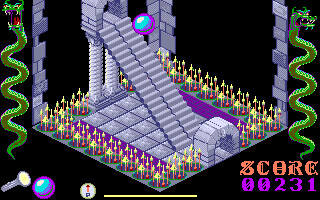
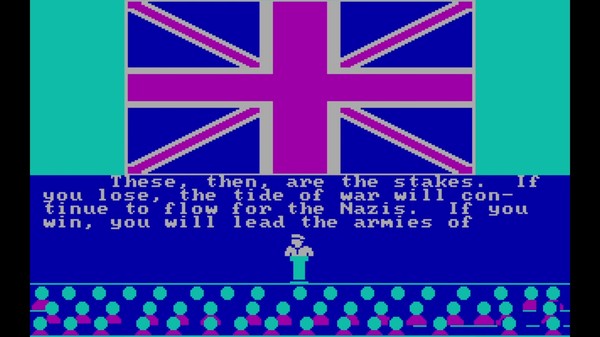
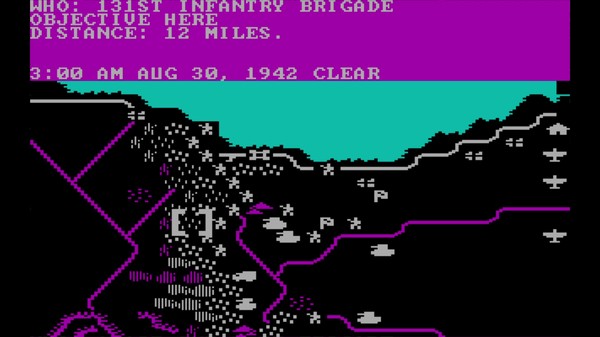
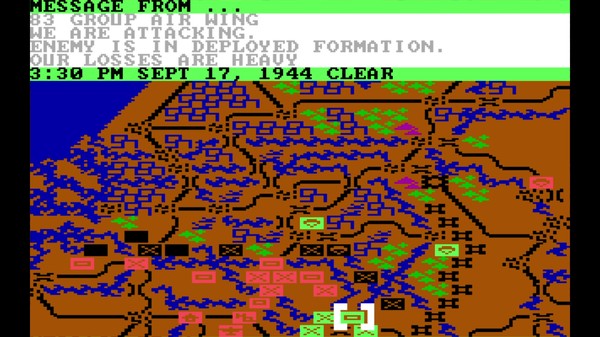
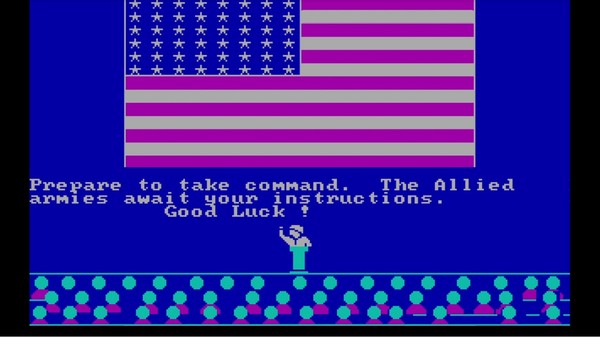
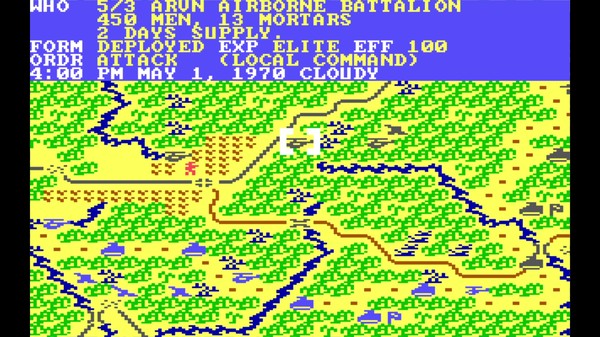
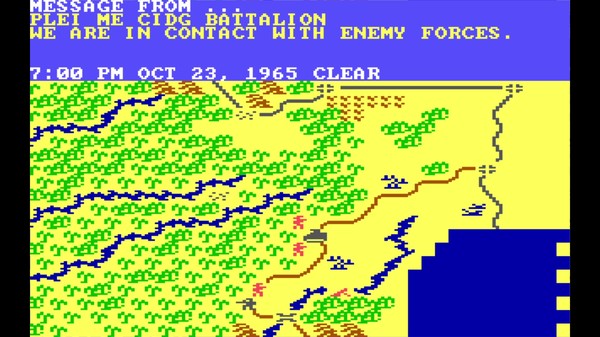


![Glory to Codexia! [2012] Codex 2012](/forums/smiles/campaign_tags/campaign_slushfund2012.png)




